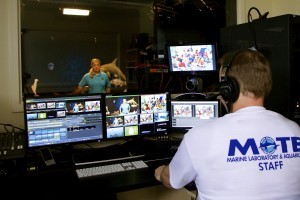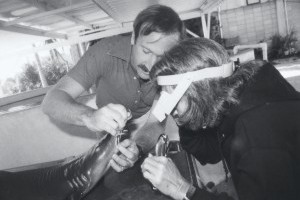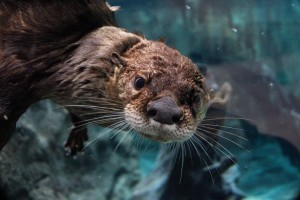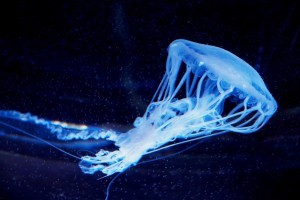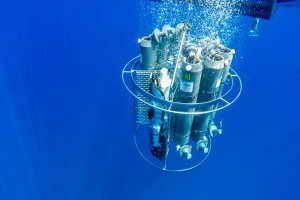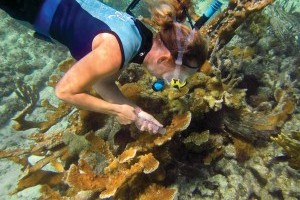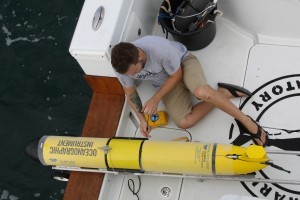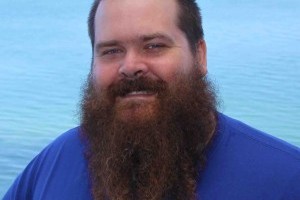Your digital window to the sea
November 10, 2017Does a “virtual field trip” sound fun? Then dive deeper with Mote’s SeaTrek.TV! This digital learning program led by Kasey Gaylord-Opalewski and Jason Robertshaw uses video chat platforms like Skype and Zoom to share marine science with kids and adults around the world. SeaTrek.TV programs have ranged from live-streaming conversations with a shark scientist at sea to studio-based chats with experts on jellyfish, corals and other marine life, along with glimpses into cool behind-the-scenes spaces such as Mote’s collection of dolphin and whale bones. Listen as Kasey and Jason share their SeaTrek smarts with “Two Sea Fans” hosts Hayley and Joe — who have clearly met their match. Learn more at SeaTrek.TV and check out related teacher professional development programs here.

